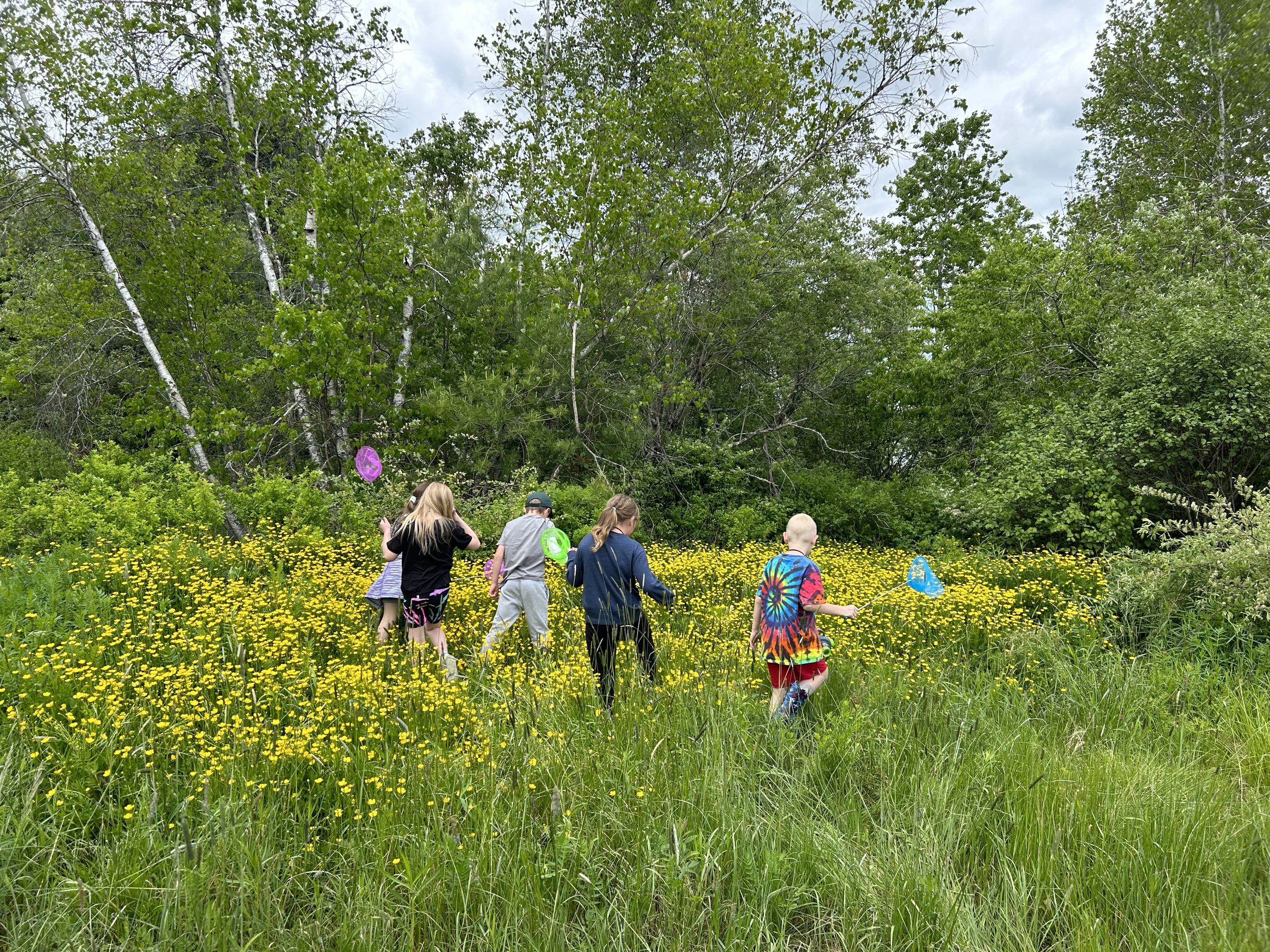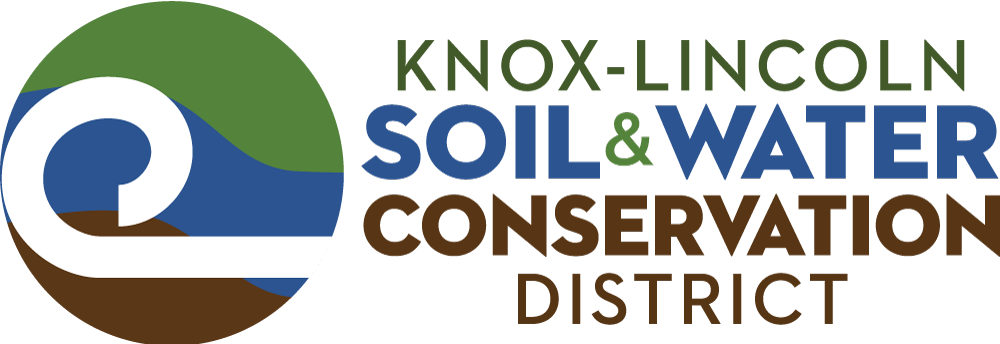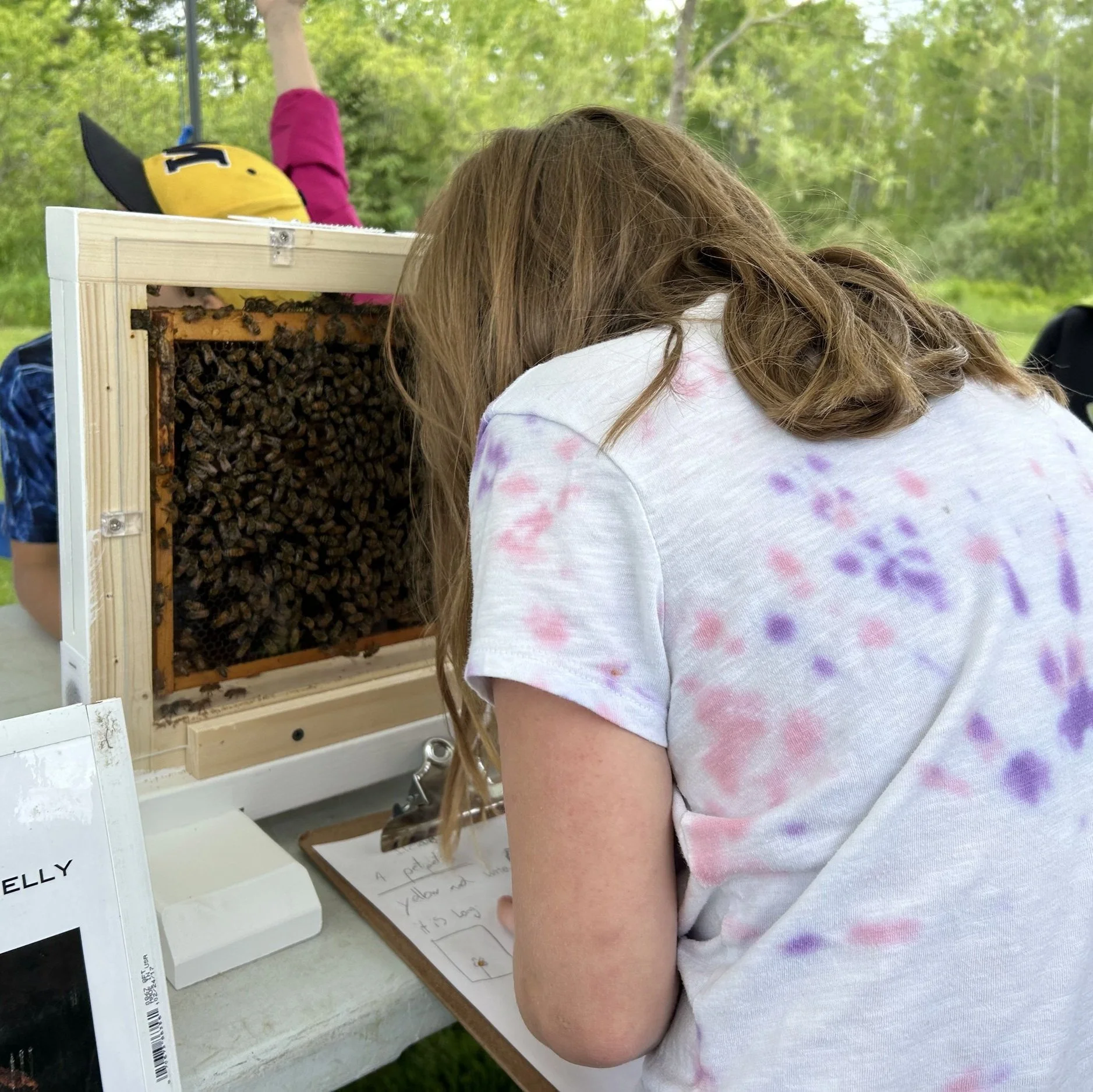Pollinator Parties
Hands-on, place based, standards-aligned program for second graders in Knox & Lincoln Counties
Pollinator Parties bring together teachers, informal educators, natural resource professionals, beekeepers, and volunteers to teach Second Grade students about pollination through engaging hands-on outdoor learning experiences.
Students learn how plants depend on animals for pollination, linking life sciences with food systems and nutrition. See what teachers are saying!
Expanding to two new schools in Fall 2024 - No Program Fee!
Submit the Interest Form below by Friday, July 12.
The Pollinator Party program takes place on school grounds and consists of six learning centers focused on pollinators and pollination.
The Pollinator Party program emerged from a need expressed by teachers who sought hands-on engaging learning opportunities to teach their 2nd grade students how plants rely on animals for pollination – a concept directly tied to Second Grade NGSS Disciplinary Core Idea: LS2.A: Interdependent Relationships in Ecosystems: Plants depend on animals for pollination or to move their seeds around (2-LS2-2).
Check out teacher testimonials here!
Pollinator Parties bring together teachers, informal educators, natural resource professions, beekeepers, and volunteers to teach 2nd Grade students at schools in Knox and Lincoln Counties about pollination through engaging hands-on outdoor learning experiences. Students learn how plants depend on animals for pollination, linking life sciences with food systems and nutrition.
The program can be delivered in a single morning or afternoon to up to ~60 students split into six learning groups rotating through the six stations. The program can also be split into several sessions over a series of 2-3 weeks, where 2-3 learning activities are completed during each session.
-
Pollinators are responsible for providing up to two-thirds of the global food supply, and around 80% of plants worldwide rely on pollinators for pollination. In addition to providing food for humans, pollinators play a key role in sustaining resilient, genetically diverse native plant communities, minimizing soil erosion, absorbing carbon, and mitigating the negative effects of excess stormwater. In Maine, 278 native bee species comprise some of our most important pollinators, along with hundreds of other insect species. Additionally, many Maine crops, including wild blueberries, rely heavily on the use of honeybees for pollination as well as native pollinators.
-
Rotating through six outdoor learning stations featuring nature journaling, insect catching, honey and fruit tasting, pollinator garden planting, a live beehive demo, read-aloud, and more, students engage all their senses while learning how plants depend on animals for pollination, directly addressing a Second Grade NGSS Disciplinary Core Idea (LS2.A). They connect with the ecology of their school grounds, learn about the role of pollinators in food production, and engage with hands-on stewardship through pollinator habitat planting. Pollinator Parties provides students with interactive activities in a place-based outdoor classroom format for an enriching, fun, and memorable learning experience.
-
By teaching students how plants rely on animals for pollination through contextualized, place-based learning activities, students will discover relevant and meaningful connections between the life sciences and food systems. Students will understand the importance of pollinators for supporting a healthy, thriving earth, and feel empowered to steward the environment and life around them.
-
• Students will gain an appreciation for and understanding of the importance of pollinators in supporting food production and biodiversity.
• Students will learn that plants and pollinators are diverse by observing plants and insects on school grounds and using tools such as hand lenses to facilitate observations.
• Students will contextualize key concepts and learning ideas in their local environment, and specifically, school grounds.
• Students will engage in environmental stewardship and learn to support pollinators through hands-on activities, including planting pollinator-friendly perennials.
-
The Pollinator Party program emerged from a need expressed by teachers who sought hands-on engaging learning opportunities to teach their 2nd grade students how plants rely on animals for pollination. This concept is a Next Generation Science Standards Second Grade Disciplinary Core Idea: LS2.A: Interdependent Relationships in Ecosystems: Plants depend on animals for pollination or to move their seeds around (2-LS2-2). The Pollinator Party program also strongly ties into another NGSS Second Grade Disciplinary Core Idea by engaging students with direct observation of the diversity of plants and insects on school grounds: LS4.D: Biodiversity and Humans: There are many different kinds of living things in any area, and they exist in different places on land and in water (2-LS4-1).
Learning centers include:
Pollinator Garden Planting: Plants & mulch provided. September is an excellent time to plant pollinator-friendly perennials (and provides the opportunity for ongoing plant care by teachers and students, vs. planting in spring before summer vacation).
Live Bee Demonstration Hive: Fully enclosed clear plastic hive for safe viewing of live honeybees.
Read Aloud and Crafting: Students listen to educational pollinator-focused book and make pollinator inspired bookmarks.
Food Systems & Taste Test: Students taste a variety of different honeys and fruits that rely heavily on pollinators.
Insect Catch & Release: Students learn about the diversity of invertebrates on their school grounds and use nets to capture insects.
Nature Observation: Interactive journalling activities and games to get students keyed into the pollinators and plants around them!

Testimonials from Teachers
“The program was a huge success! Students reported it being one of their favorite days of the year and parents were impressed by the breadth and depth of the Pollinator Party learning stations. School administrators were thrilled to see how smoothly this went off, knowing how much time and moving pieces it required. It also very nicely supported our science standards. KLSWCD staff are very knowledgeable and enthusiastic, and know how to engage our second graders with conservation education. They helped us network with community organizations and experts, enabling us to get donations for materials and volunteers. We could not have done it alone!”
“The program fit in perfectly with our goals. I can't wait to do it again!”
“Thank you so much for another amazing Pollinator Party. Your dedication to this event is impressive and all of your hard work is appreciated. The students had an amazing day! Your volunteers were amazing as usual and your effort in setting everything up is a gift. We came down to help clean up after school and it was all done! Once again, thank you for all of your efforts.”
Pollinator Parties Interest Form
Please complete this form by Friday, July 12 if you are interested in bringing the Pollinator Party Program to your school.


